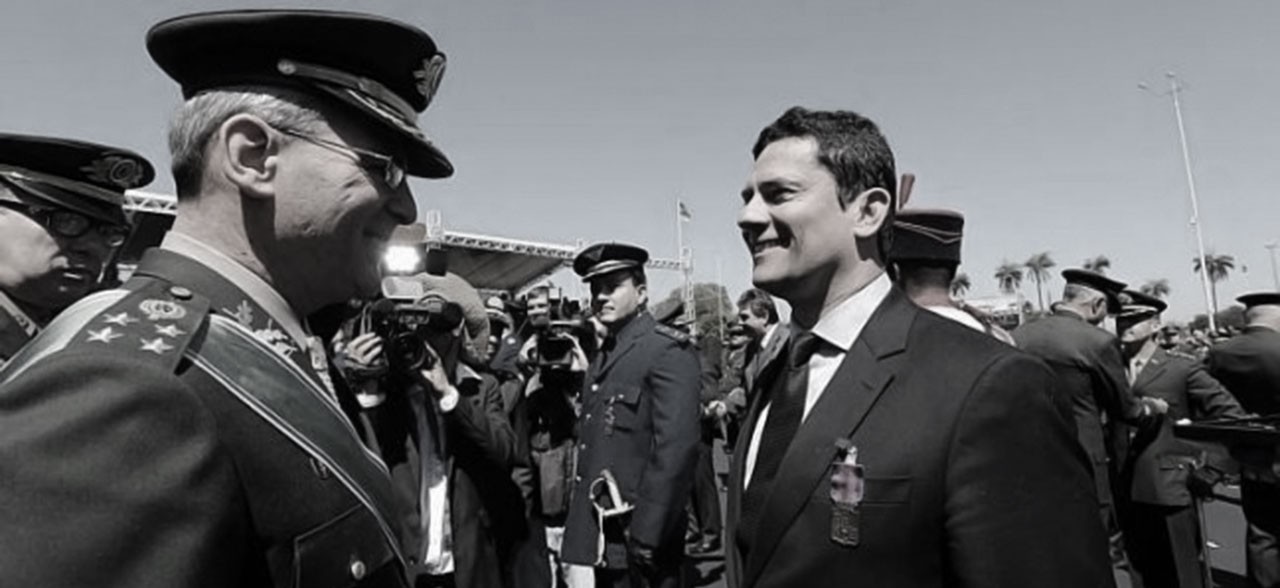A theatre play that mocks the violence of the Military Police was interrupted by the Military Police itself, indicative of a dark moment — Brazil’s flirtation with fascism. The play, titled “Blitz: The empire that never sleeps”, will face charges of “disrespect for national symbols”.
One of the play’s crew noted that other types of censorship existed, but in a subtle way, such as the Police harassing them before the performances began. They were searched and police vehicles were circulating during the exhibition, outside of the theatre. What they faced was not only symbolic but a rejection of freedom of speech and democracy.
The empire that never sleeps uses satirical humour to make a critical portrait of the Military Police from a historical perspective. It highlights the most compelling aspects of how the institution was built and talks about the high rates of PM violence against black people.
Now, in the speech that marked his irregular arrival to the Presidency of Brazil, Michel Temer announced a slogan of his government: “Do not think of crisis, work.”. Yet, only the Brazilian people live under this kind of rigid rhetoric, like Order and Progress — the government’s official slogan, carried on the Brazilian flag.
Temer’s administration started with a clear war on rights, not only due to the entrenched interests within the new management, such as private health companies that have an interest in the SUS (Brazilian Public Health Care System) debacle and, coincidentally, are major donors to election campaigns of the new Government. It is also indicative of an administration that craves order and fears democracy. Temer’s Administration is the result of a parliamentary coup, established on the ruins of democracy based on fundamentalist and fascistic inclinations of Brazil’s plutocracy.
For example, Congresswoman Jandira Feghali noted the quasi-fascist propaganda “Let’s take Brazil out of the Red”, articulated by Temer, which was to be published in major newspapers. It is a direct message of hate towards parties using the colour red, arbitrary violence against democracy. This attempt to eliminate divergent forces reveals the fascist thinking of those who can’t live with an opposition: to maintain power, use violence, real and symbolic, repressing any person / institution that doesn’t accept their impositions.
When speaking of red Temer wants to create clear division — the rhetoric of protecting “our Brazil” from “other Brazilians”.
The media is a perfect partner in propagating judicial-police theatre, one of the key ingredients for arousing selective hatred, witch hunts, political fanaticism and religious fundamentalism. It has constructed a “Captain Brazil”, Federal Judge Sergio Moro, who is above the Brazilian constitution. Former President Luiz Inacio Lula da Silva last week released a note stating that the OHCHR (UN High Commissioner for Human Rights) had agreed preliminarily to a petition which states that the Lula had his human rights violated by Moro.
Among the violations cited in the petition filed by Lula’s defence is the manner of his detention – coercive conduct, to which he was submitted in March this year, the disclosure of telephone conversations recordings in which Lula, his family and staff of the Lula Institute appeared, and the alleged anticipatory value judgement, without evidence, by Moro against Lula, before any trial had taken place.
If it is just theatre, or if it is just an unelected plutocrat, or if it is a Federal Judge manipulating the legal system, promoting popular agitation and prosecution of the opposition as immoral and illegal, we can recognise that Brazil is living in the shadow of a plutocratic fascism.
Is the rigid and arbitrary manipulation of public life, and of Brazilian democracy, a necessary suffering?
Main photo: Sergio Moro receives military honour in Curitiba, December 2015.
[qpp]

